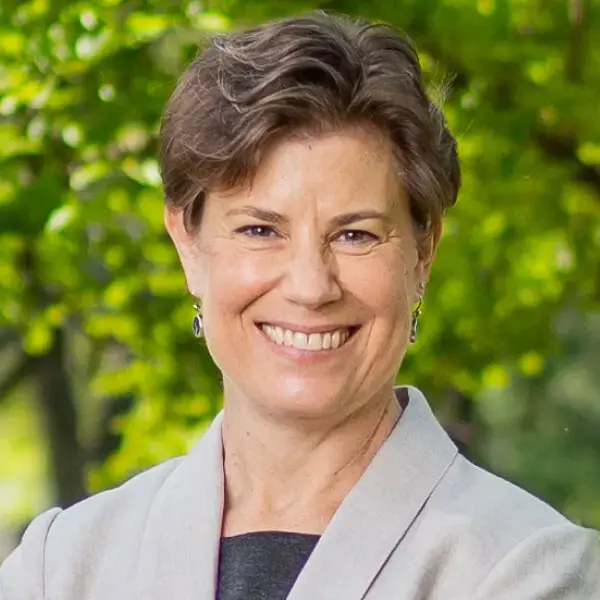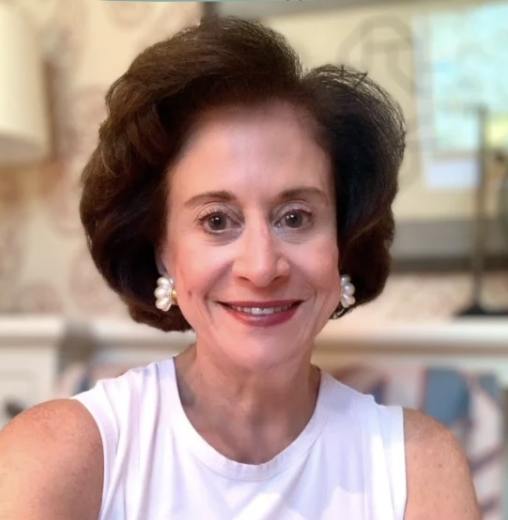April 13 | Carbon Offsets: Promise, Perils and the Path Forward
April 13 | Carbon Offsets: Promise, Perils and the Path Forward
Jump right to:
Registration | Agenda | About the Speakers
.png)
As Earth's temperatures surge and emissions reductions lag, the push to harness private capital for climate solutions intensifies. Enter the world of voluntary carbon offsets: an oft-debated solution.
The urgency of climate change requires the rapid deployment of a diverse range of solutions. For some, like wind and solar-generated electricity and electric vehicles, the question is how fast can they be deployed. But for voluntary carbon offsetting, the conversation has centered much more about whether they should be deployed at all, and if so, how? Some argue carbon offsets are a way to leverage enormous amounts of private capital to low-cost, efficient emissions reductions and carbon storage. Others reply that offsets are a moral hazard that allows institutions to avoid the immediate need for in-house emissions reductions. So how should we move forward?
On April 13, dive deep into the complexities of this emerging topic during "Carbon Offsets: Promises, Perils and the Path Forward," a full-day conference bringing together prestigious guests from a variety of perspectives to discuss pressing questions about carbon offsets including: an overview of the carbon offset market, a focus on “nature-based” offsets, and the decisions institutions have to grapple with when engaging in the offset market. Our panelists include experts from the private sector, from organizations developing standards for the voluntary carbon market, from carbon offsets verification bodies, and from academia.
This event is co-sponsored by the Institute at Brown for Environment and Society, the Office of the Provost, and the Climate Solutions Lab at the Watson Institute for International and Public Affairs.
REGISTER NOW
Note: In-person attendance is strongly encouraged. A livestream will be available for remote participants.
Agenda
See below for more information about the panelists.
9 – 10:30 am | Panel: The State of the Voluntary Carbon Offset Market
- Moderator: Ricardo Bayon '89
- Panelists:
- Annette L Nazareth '78, P'13 (Integrity Council for the Voluntary Carbon Market)
- Rachel Kyte P'27 (Tufts University, Voluntary Carbon Markets Integrity Initiative)
- Nat Keohane (Center for Climate and Energy Solutions)
10:45 am – 12:15 pm | Panel: “Nature-based” Carbon Offsets
- Moderator: James Kellner
- Panelists:
- Spencer Meyer (BeZero Carbon)
- David Schurman '20 (Perennial)
- Carolina Lisboa (Verra)
1:30 – 3 pm | Panel: Institutional Engagement in Voluntary Carbon Offsetting
- Moderator: Stephen Porder
- Panelists:
- David Antonioli (Sustainable Environmental Services Corp; Former CEO, VERRA)
- Tracey Osborne (UC Merced, UC Center for Climate Justice)
- Jen Jenkins (Rubicon Carbon)
3 – 3:30 pm | Post-Panel Reception
Meet the speakers
These nonprofit professionals, academics, and private sector innovators will offer unique insights on the future of carbon offsets.

|
David Antonioli is a strategic advisor who specializes in harnessing the power of markets to solve critical environmental issues and support sustainable development. He has worked on climate change for the last 30 years and most recently served as CEO of Verra. Antonioli’s experience includes working in the private sector as a project developer (EcoSecurities) and a government official (USAID in Mexico). |

|
Jennifer Jenkins is the chief science officer at Rubicon Carbon, a company specializing in supporting enterprise customers through their decarbonization and net-zero journeys with market-based products and solutions. Dr. Jenkins is broadly responsible for ensuring that Rubicon’s products and portfolio meet the highest standards for quality and integrity. In addition, she leads Rubicon Carbon’s work on monitoring, reporting, and verification (MRV) as well as stakeholder engagement, ESG strategy, marketing, and thought leadership. A co-recipient of the 2007 Nobel Prize along with Al Gore and other IPCC scientists, Dr. Jenkins led the work that culminated in the publication of the “Jenkins Equations,” the widely accepted method for estimating tree biomass from diameter in the US. |
.png)
|
Nathaniel Keohane is president of the Center for Climate and Energy Solutions, a leading nonprofit working to accelerate the transition to a thriving, just, and resilient net-zero-emissions economy. Dr. Keohane is a globally recognized expert on climate policy, carbon markets, and the economics of climate change. He has over 20 years of energy and environmental policy experience, including at the Environmental Defense Fund, where he held roles including chief economist and senior vice president for climate; as special assistant to President Obama for energy and environment in the National Economic Council; and as associate professor of economics at the Yale School of Management. |

|
Rachel Kyte P’27 is a visiting professor of practice at Oxford’s Blavatnik School of Government and dean emerita of Tufts’ Fletcher School of Law and Diplomacy. She is the founding co-chair of the Voluntary Carbon Markets Integrity Initiative, a multistakeholder international organization enabling a high-integrity voluntary carbon market to deliver on the Paris Agreement. Kyte has served as special representative of the UN secretary-general and CEO of Sustainable Development for All. She has also served as World Bank Group’s vice president, special envoy for climate change, and IFC vice president. |

|
Carolina Lisboa is a manager of agriculture innovation at Verra and assesses agricultural sector opportunities in their Verified Carbon Standard program. She focuses on best practices related to cutting-edge agricultural technologies and frameworks for greenhouse gas quantification. Dr. Lisboa previously worked as an international consultant in Sustainable Soil Management at the Food and Agriculture Organization of the United Nations and as coordinator of the Global Agricultural Long-Term Experiment Network at Rothamsted Research. |

|
Spencer Meyer is the vice president of ratings at BeZero Carbon. He is an expert in forests and climate, and has been working for over two decades on developing nature-based climate solutions through partnerships and finance. Dr. Meyer has worked with climate tech, the forest industry, NGOs, private foundations, and governments to improve carbon markets, forest management, finance, and partnership development. Before joining BeZero, Dr. Meyer worked at NCX, Highstead Foundation, Harvard Forest, Yale School of the Environment, The Nature Conservancy, and the University of Maine. |

|
Annette L. Nazareth ’78, P’13 is a financial services lawyer and chair of the governing board of the Integrity Council for the Voluntary Carbon Market, an international organization that is establishing a global threshold standard for high integrity carbon credits. She served as a commissioner of the U.S. Securities and Exchange Commission and, earlier, as the first female director of the SEC’s Division of Trading and Markets. More recently, Nazareth was a partner at Davis Polk & Wardwell, where she headed the firm’s Washington, D.C. office and created and led its Trading and Markets practice in its Financial Institutions group. |

|
Tracey Osborne is the founding director of the University of California Center for Climate Justice and associate professor and presidential chair at UC Merced’s Management of Complex Systems Department. Dr. Osborne’s research focuses on the social and political economic dimensions of climate change mitigation in tropical forests and the role of Indigenous Peoples, the politics of climate finance (with particular emphasis on carbon markets), global environmental governance, and climate equity and justice. |

|
David Schurman ’20 is a computational scientist, information designer, and entrepreneur specializing in Earth and planetary sciences. He is the co-founder and CTO of Perennial, a remote sensing and climate-tech company developing an AI-based global measurement platform for agricultural greenhouse gasses. His background also includes 10 years of involvement in climate solutions, ranging from oceanic carbon sequestration to solar radiation management to land sector abatements and removals. |